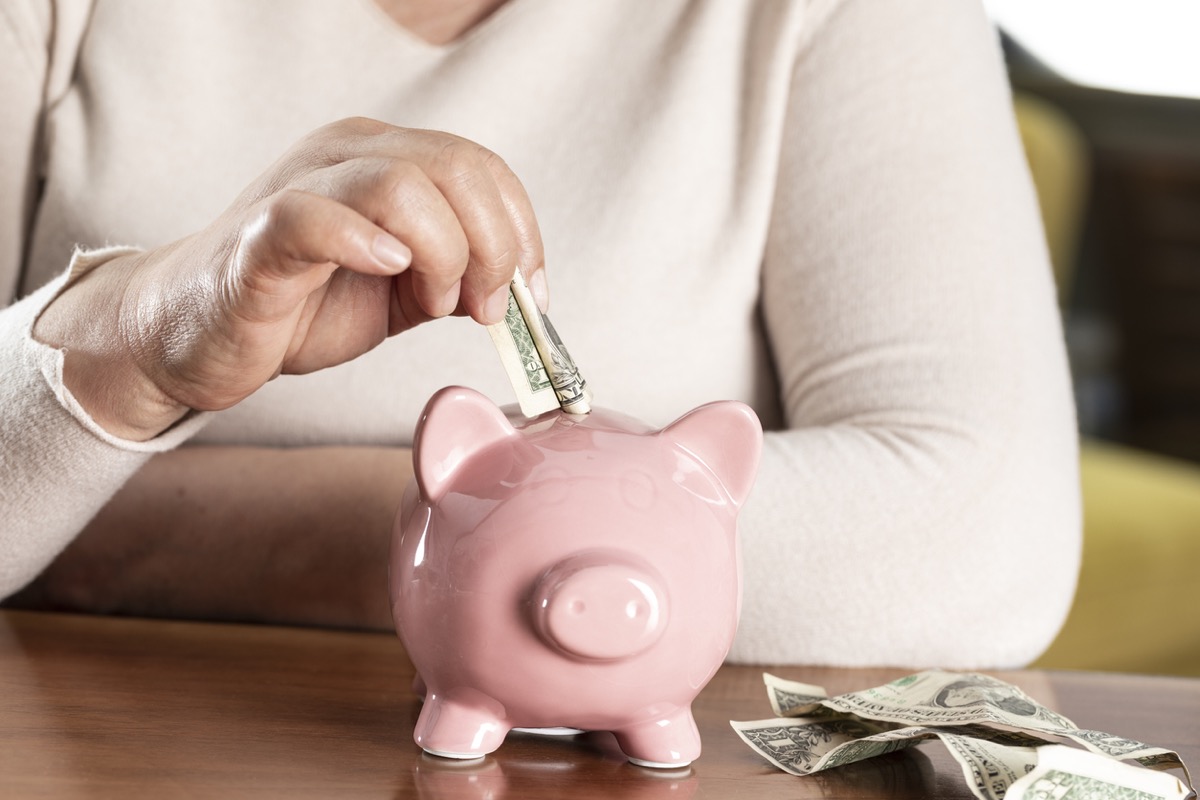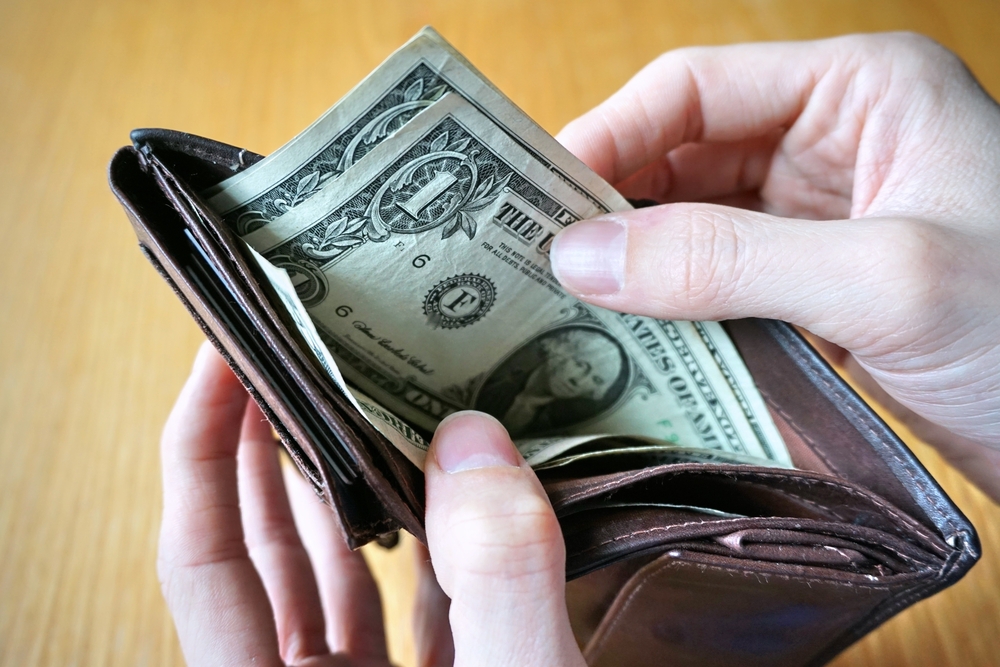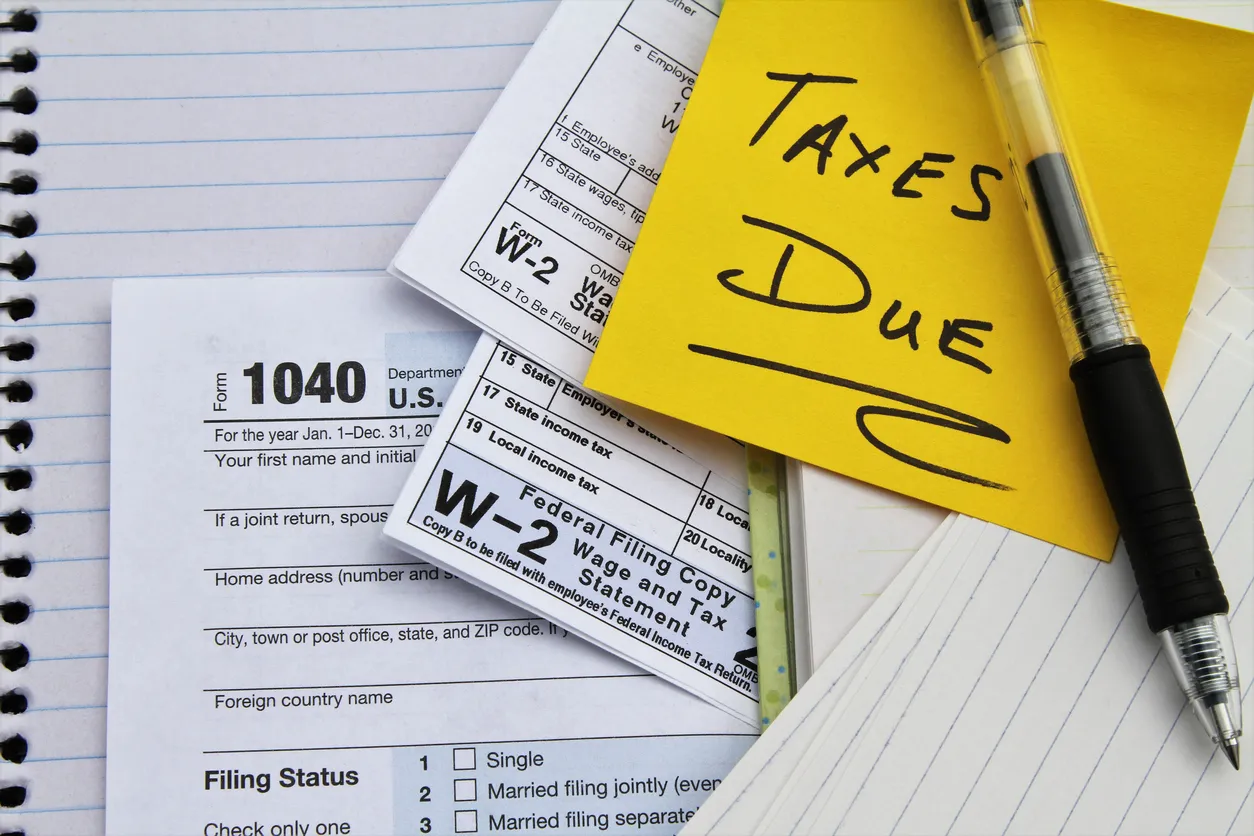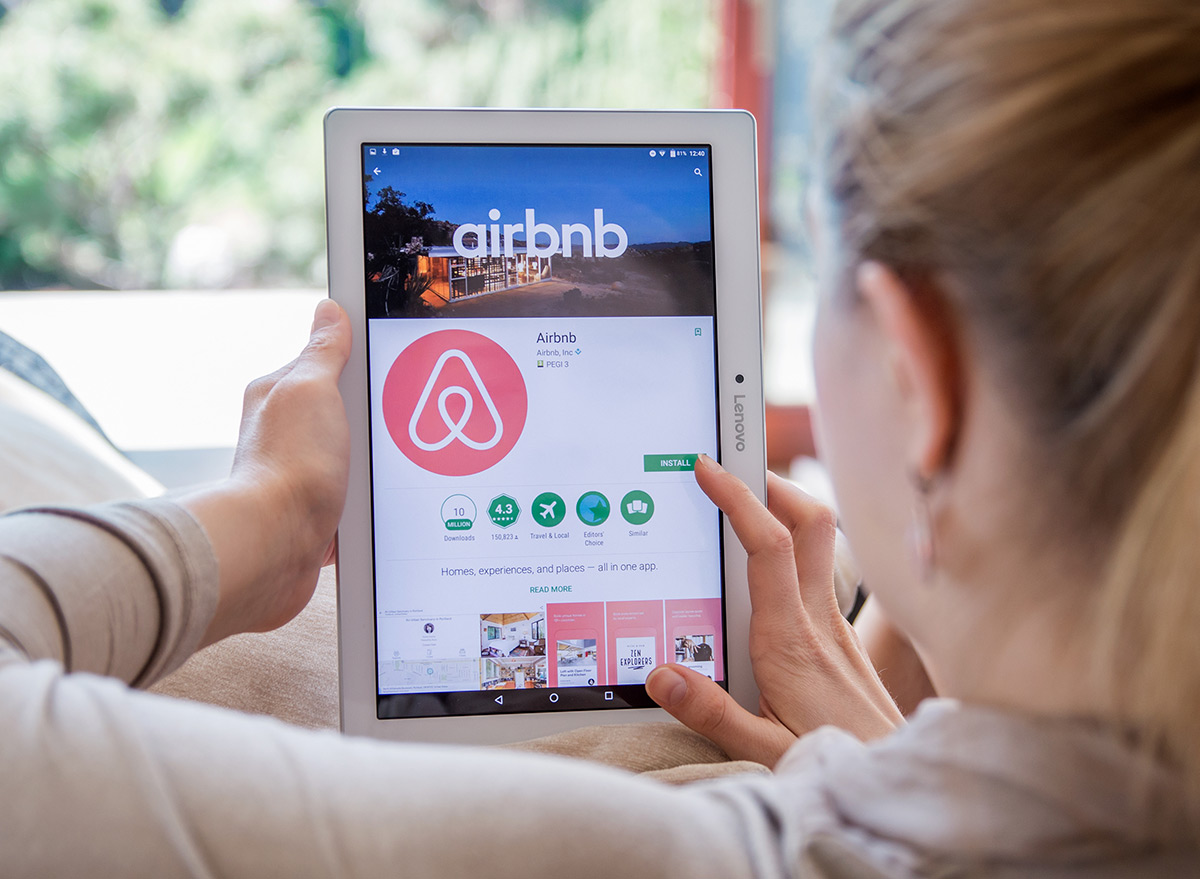How to Pay Off Your Mortgage Early, Finance Experts Say
These 12 tips put financial freedom within reach.

According to a recent report by Lending Tree, 94 percent of surveyed Americans say that owning a home is part of the American Dream. Eighty-four percent say it's on their own personal list of goals for the future. Yet unless you have the cash to purchase a property outright—and who does?—buying a home doesn't necessarily equate to financial freedom. With every monthly payment, you get closer to the real American Dream: owning your own home without all the strings attached. If you're still slogging through monthly payments, you may be wondering how to pay off your mortgage faster.
The good news is that financial experts say it's possible—and well worth it. That's because if you can pay off your mortgage sooner rather than later, you can significantly cut down on not only the principal but also on interest payments. This can be especially beneficial if interest rates were high at your time of purchase.
However, it's worth noting that it's not always best to pay off your mortgage early. If you have other large debts with even higher interest rates—for instance, student loans or personal loans—you should pay those down first while keeping up with your regular mortgage payments.
Once that's done, you're free and clear to make major headway on your mortgage. "If you find yourself in a favorable financial situation and are comfortably meeting your monthly mortgage payments, the prospect of early mortgage repayment may emerge as a realistic goal," says Pete Mugleston, a mortgage expert at Online Mortgage Advisor. "There are several strategic avenues that homeowners can explore to work towards paying off their mortgage early."
Ready for your new payment plan, approved by mortgage and finance experts? These are their best tips for paying off your mortgage faster.
RELATED: Don't Refinance Your Mortgage Without Doing This First, Experts Warn.
12 Ways to Pay Off Your Mortgage Faster
If you're ready to make a change but not sure where to begin, you may now be wondering: How can I pay off my mortgage faster? It is, of course, easier said than done. Luckily, experts say that by knowing the options available, you can begin to strategize paying down your debts.
1. Commit to overpayment.

One of the simplest ways to pay off your mortgage faster is by increasing your monthly payments, which is often referred to as an overpayment.
"Overpaying on your mortgage not only reduces the amount of interest you pay on your debt but also accelerates the decrease in your loan-to-value ratio," explains Mugleston.
"This could lead to more affordable remortgaging options than if you hadn't overpaid," he adds, noting that people who overpay on their mortgage, even by just a couple of hundred dollars per month, can shave years off their mortgage term and save thousands in interest.
Even if you don't have a lot of extra cash lying around, you can do this by rounding up your mortgage repayments to the nearest hundred, resulting in consistently higher payments.
"Even a small increase in each payment can make a significant difference over time," Mugleston says. "By consistently paying more than the required amount, you reduce the principal balance faster, which in turn reduces the amount of interest you owe. This approach accelerates the repayment process and can help you pay off your mortgage ahead of schedule."
2. Use windfalls wisely.

Next, Mugleston recommends putting any financial windfalls you may receive toward an extra mortgage payment. When you do so, make sure to specify that you'd like to use the money to pay down the principal loan.
"Windfalls, such as bonuses, tax refunds, or inheritances, can expedite your mortgage repayment by providing a lump sum of funds that can be allocated towards paying off a portion of your mortgage principal," the mortgage expert says.
"By applying windfalls directly to your mortgage balance, you automatically reduce the outstanding debt, thereby decreasing the amount of interest accrued over the remaining loan term," he explains. "This approach accelerates your mortgage repayment and can significantly shorten the time required to pay off the loan in full."
3. Make bi-weekly payments.

Another way to accelerate your payment schedule is to split your monthly payments into bi-weekly payments without changing the total amount you contribute each month.
"By switching payments from monthly to bi-weekly, you make 26 half-payments annually, effectively totaling 13 full payments each year. This strategic approach serves to progressively curtail interest obligations over the mortgage term," Mugleston says.
Erika Kullberg, a personal finance expert, attorney, and the founder of Erika.com, agrees that making extra mortgage payments on a bi-weekly basis is a sound strategy. "Do this, and your mortgage term could be cut down by up to five years, while your interest payments would produce a whopping 20 percent saving," she tells Best Life.
RELATED: You Need to Earn Six Figures to Afford a Home in These 22 States, New Data Shows.
4. Save up for one extra payment per year.

Even if you don't split your payments into bi-weekly installments, you can pay off your mortgage faster by making an extra mortgage payment at a time that works best for you.
"Make an extra month's payment once a year, using a tax refund, bonus, or by saving a little each month. This is similar to bi-weekly payments and can reduce your mortgage term by several years," says Kullberg.
Felton Ellington, lending manager at Chase Home Lending, says that before you make any extra payments, you should be sure to check with your lender to learn more about what options or offers may be available to you.
"For instance, an overage could be automatically applied to your next payment, which would reduce the amount due that month, but wouldn't meaningfully affect your principal," he tells Best Life. "In other cases, your lender may offer the ability to allocate an additional amount or even set up a recurring payment plan that applies additional payment to the principal balance.
"If you're planning to stay in your home, want to build equity, pay off your mortgage faster, or want to save on interest, making extra payments on your mortgage could be worthwhile," Ellington adds.
5. Dedicate raises to your mortgage.

If you're comfortably paying off your mortgage using your current salary, dedicating any future raises toward payment can help make the most of your monthly mortgage payment.
"Take whatever increase comes your way in your annual income and apply it to pay your mortgage," advises Kullberg.
This may also give you the nudge you need to negotiate raises on a set schedule. Most experts agree that you should ask for a raise every one to two years, depending on your field.
6. Add a dollar—or 10—each month.

Scott Lieberman, founder of Touchdown Money, says that another way you can speed up your mortgage payments is to add a dollar each month.
"A dollar seems small, but it can snowball. If your income rises, you can make your payments rise with them. By year 10, you're paying an additional $120 each month. By year 20, it's up to an extra $240 a month, and you'll soon be done," he says. To expedite the process even further, add $10 each month for as long as you can sustain the increase.
Not sure where you'll find the cash? Kullberg recommends canceling or postponing non-essential spending and funneling that money into your mortgage. "Reduce your discretionary spending by lowering your restaurant outings or subscriptions or cutting back on luxury items," she suggests.
RELATED: I'm a Realtor and These are the 5 Red Flags That a Home Is a Money Pit.
7. Avoid private mortgage insurance (PMI).

Mugleston says that another way to pay off your mortgage faster is to avoid private mortgage insurance (PMI).
"PMI is an additional cost that adds to your monthly mortgage payment," he explains. "By avoiding PMI, you can lower your monthly expenses and allocate more funds toward your mortgage principal, accelerating the repayment process."
"PMI is typically required for borrowers who make a down payment of less than 20 percent of the home's purchase price. By making a larger down payment or waiting until you have sufficient equity in your home to avoid PMI, you reduce the overall cost of borrowing and shorten the time it takes to pay off your mortgage," he points out.
8. Invest the money you save on your mortgage interest tax deduction.

Owning a home comes with certain perks when tax time rolls around. In particular, you should receive a mortgage interest tax deduction for up to $750,000 of your mortgage debt on your primary residence.
A simple way to use that saved money to your advantage is to re-invest it into an overpayment on your next monthly mortgage payment. You won't miss the money, and you'll put it to good use.
9. Get a side hustle to boost your mortgage payments.

Budgeting expert Andrea Woroch says that even if you want to pay your mortgage off early, it's important that you don't compromise the rest of your budget. "This could leave you relying on your high-interest credit card all too often," she tells Best Life.
Woroch adds that a great way to make bigger mortgage payments without depleting your bank account is to start a side hustle and put those extra funds toward your loan. Not sure where to begin? She recommends virtual tutoring, pet sitting, or renting out a spare room in your home via Airbnb.
RELATED: 11 Hidden Things That Affect Your Credit Score, Finance Experts Say.
10. Monitor your progress.

Mugleston says it's a good idea to be conscious of your overall progress in paying down your mortgage, which can help you keep your big-picture goals in mind.
"Regularly reviewing your mortgage balance facilitates quicker repayment by providing a clear understanding of your progress towards debt elimination," he says. "By staying informed about the remaining principal balance, any changing interest rates, and such, you can strategize and adjust repayment efforts accordingly. Staying vigilant with regular reviews pushes you to make informed financial decisions and expedite the process of paying off your mortgage."
11. Create a budget for your other expenses.

You can't pay off your mortgage faster if other expenses keep creeping up and depleting your available funds. Mugleston recommends making a clear budget reflecting all of your financial commitments so that you have fewer unexpected payments to make.
"Budgeting plays a crucial role in expediting mortgage repayments," he urges. "Effective budgeting enables you to identify and eliminate unnecessary expenses, allowing you to allocate a higher portion of your income towards mortgage payments, reducing the principal amount owed."
12. Refinance your mortgage to a shorter term.

Finally, if you're fully committed to paying your mortgage off early, you can always refinance with your lender.
"Refinancing to a shorter term can reduce your overall mortgage term because it typically involves securing a loan with a shorter repayment period. This means you make higher monthly payments compared to longer loan terms," explains Mugleston. "Shorter loan terms often come with lower interest rates, which means less money is paid towards interest over the mortgage lifespan. As a result, you can save on interest expenses and pay off your mortgage faster compared to a longer loan term."
Kullberg agrees that this can be a highly effective strategy if you can afford it. "On top of reducing your interest rate, refinancing to a shorter mortgage term—say, from 30 years to 15 years—can cut years off your loan term," leading to financial freedom sooner, she says.
Best Life offers the most up-to-date financial information from top experts and the latest news and research, but our content is not meant to be a substitute for professional guidance. When it comes to the money you're spending, saving, or investing, always consult your financial advisor directly.





















